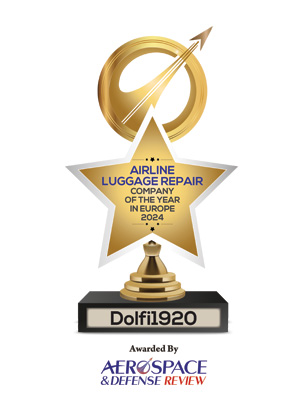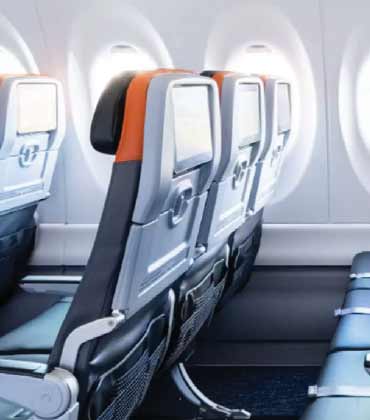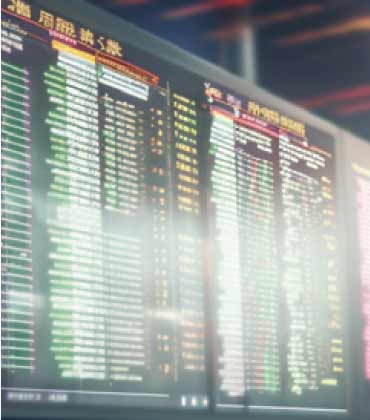THANK YOU FOR SUBSCRIBING
When travelers discover their luggage has been damaged, the last thing they want is a complicated resolution process. Dolfi1920 has carved out a niche by transforming the typically cumbersome and time-consuming baggage damage claim process into a seamless and hassle-free experience, making travelers’ lives easier. It offers a unified solution that simplifies how airlines and passengers handle luggage mishaps. By providing a consistent method and pricing worldwide, the firm eliminates the need for multiple suppliers. The company’s expansive network is a testament to its efficacy and appeal. With partnerships spanning over 100 airlines, including industry giants like Emirates, Air France, Lufthansa, KLM, American Airlines, Dolfi has integrated its services seamlessly into the global air travel industry. The airline partners are only involved during the contract phase and the implementation of the services. From there, Dolfi assumes responsibility for the claims process, including
CXO INSIGHTS

Navigating Challenges in Airfield Maintenance
Pyry Pennanen, Head of Airfield Maintenance at Finavia

Future of Digitized Aerospace Industry
Bruno Cervia, VP R&D, Deputy CEO, Pilatus Aircraft Ltd
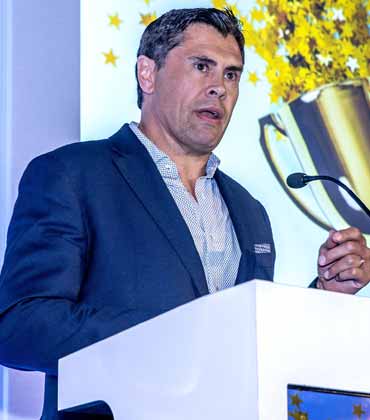
Revamping the future of CNC machining space
Alex Rose-Parfitt, Engineering Director, Raytheon UK
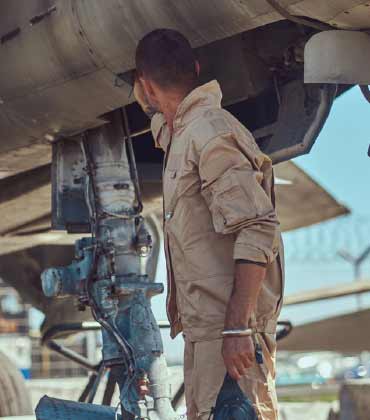
Safeguarding Aviation: Mitigating Human Error in Aircraft Maintenance, Repair, and Operations
Joanna Kolokythas, Line Maintenance Manager at National Jet Express

Developments in Aircraft Architecture Design
Thomas Ahn, Vice President Engineering, Deutsche Aircraft

New Space 3.0 Enables Responsiveness, Resilience and Availability
Christina Aas, Technical Director, SmallSat Systems, Kongsberg Defence & Aerospace

Unveiling Automated Maintenance in Aviation
Robert DeGrie, Director of Technical Services (Aircraft Engineering), Amerijet International
IN FOCUS
Sustainable Solutions for Aircraft Interiors
The aviation industry, integral to global connectivity, faces significant challenges related to its environmental footprint. As awareness of carbon emissions grows, the sector is increasingly pressured to adopt sustainable practices. Adopting eco-friendly materials for aircraft interiors is a promising approach to mitigate aviation’s environmental impact
Unpacking Innovation To Meet Modern Traveler Demands
The airline luggage repair industry in Europe is a specialised field dedicated to addressing the needs of travellers whose luggage is damaged during air travel. It focuses on making the entire process seamless and hassle-free, offering efficient solutions that prioritise customer convenience.
EDITORIAL
Sustainable Luggage Redefines Travel
Sustainable materials such as recycled polyester, nylon, vegan leather alternatives, and eco-friendly hardware are increasingly used in luggage repair. These materials reduce reliance on virgin resources and minimise carbon footprints, with some compostable at the end of their lifecycle. Upcycling has also emerged as an innovative European approach, repurposing damaged bags into new items like travel pouches, laptop sleeves, and wallets.
Collaborative repair programs between airlines, manufacturers, and local governments are critical to establishing an effective, large-scale, sustainable luggage repair system. The EU’s Circular Economy Action Plan encourages industries to prioritise waste reduction through repair and recycling initiatives. Some airlines have adopted policies enabling passengers to bring damaged luggage for repair at no additional cost, incentivising travellers to maintain and repair their existing luggage.
Educating travellers on sustainable choices is essential to the long-term success of these initiatives. Airlines can play a pivotal role by informing passengers about sustainable luggage practices, encouraging repair over replacement, and promoting upcycled products. The rise of eco-conscious consumers in Europe has spurred a growing market for sustainable luggage brands prioritising reparability and environmental stewardship.
This edition features Dolfi1920 and further delves into how Europe’s advancements will likely inspire a worldwide movement toward greener, more conscious aviation. The magazine highlights insights from Kátia Faradiba Vidal, Flight Operations Technical Support Manager & EFB Administrator at HI FLY and Ross Peterson, Director of Engineering and Reliability, Piedmont Airlines. We hope these valuable insights from industry leaders featured in this edition will assist you in making informed decisions for your businesses.

However, if you would like to share the information in this article, you may use the link below:
https://www.aerospacedefenserevieweurope.com/edition/sustainable-luggage-redefines-travel-5.html



